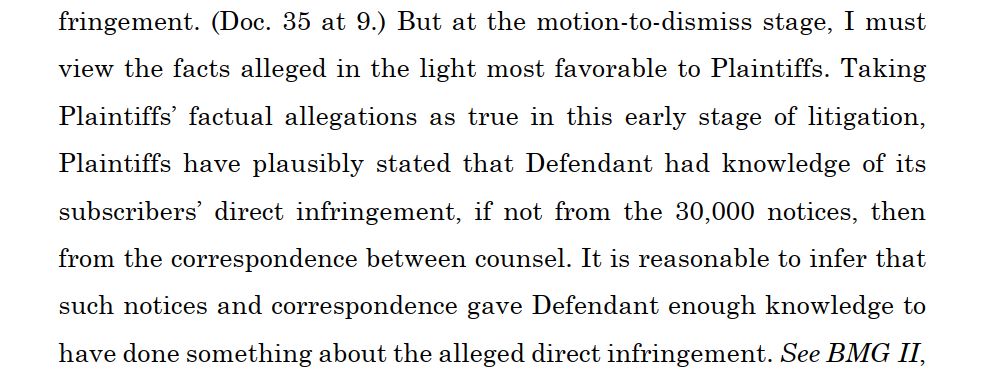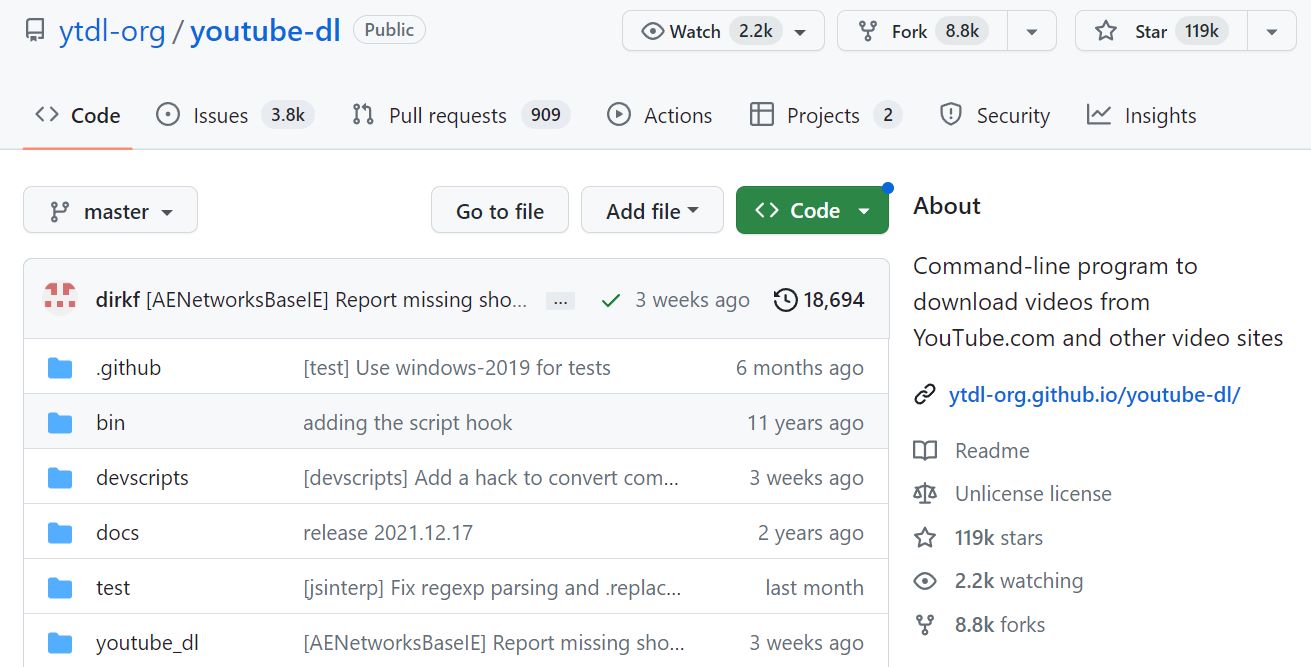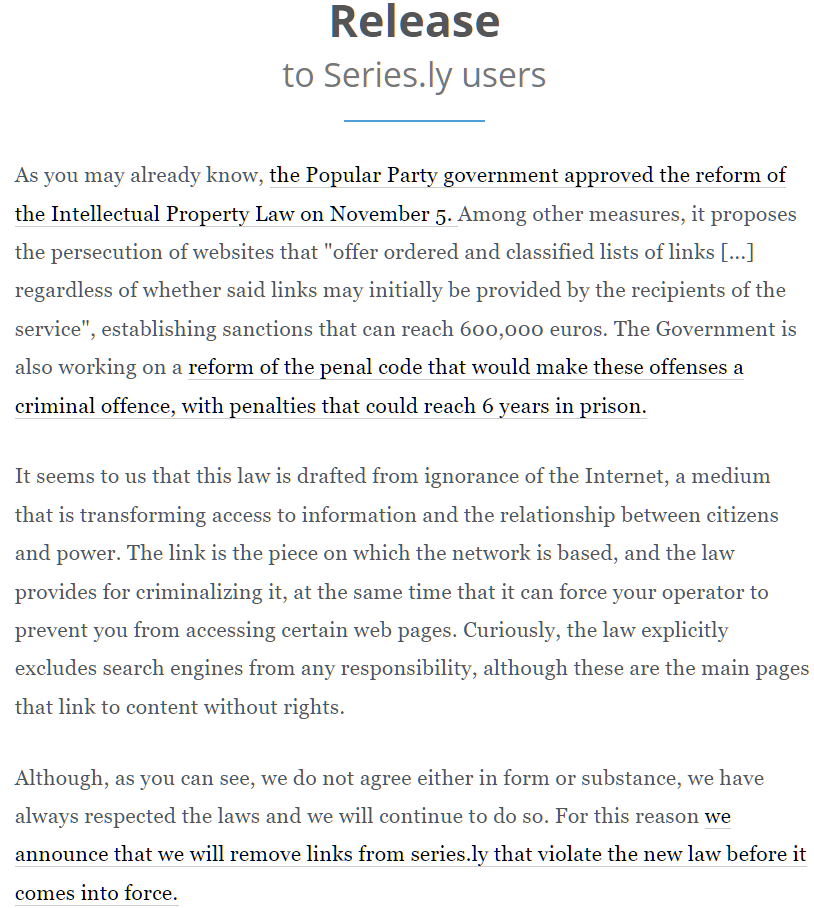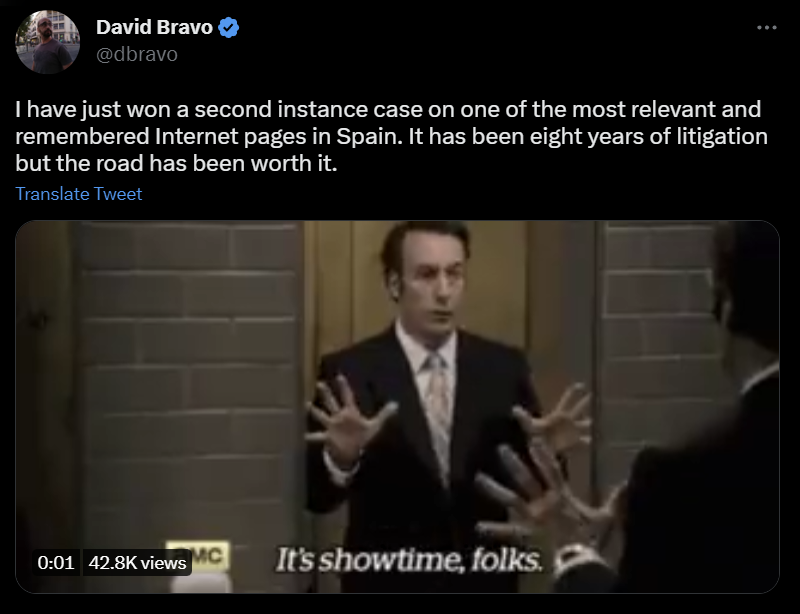-
chevron_right
TPB Founders Are Not Involved in the “The Pirate Bay” TV Series (Update)
news.movim.eu / TorrentFreak • 8 April, 2023 • 4 minutes
 Two years ago, reports began to surface about a new
six-part TV-series
on The Pirate Bay’s turbulent history.
Two years ago, reports began to surface about a new
six-part TV-series
on The Pirate Bay’s turbulent history.
The project was initially scheduled to start last year but after an apparent delay, filming is now expected to begin this fall.
Pirate Bay TV Series
The inception and early years of The Pirate Bay are definitely a worthy subject for a series. While most pirate sites hid in the shadows, Pirate Bay’s founders were public figures, who openly taunted the entertainment industries.
Speaking with Variety , head-writer Piotr Marciniak explains that his screenplay is based on a wealth of archive material as well as interviews with the site’s founders.
“It’s a classic rise and fall story, a tragedy about flying too close to the sun, but also a timeless story of a generational conflict,” Marcimiak said.
The people involved in the “The Pirate Bay” series are clearly looking forward to getting the project running. The production is in the hands of B-Reel Films , working for the Swedish broadcaster SVT, while the American distribution company Dynamic Television scooped up worldwide rights.
Selling The Pirate Bay ‘Rights’
Indeed, the rights to The Pirate Bay series are actively traded. The same will likely happen to pirated copies of the episodes when they’re illicitly posted to The Pirate Bay, but it’s unclear whether the rightsholders have plans to crack down on unauthorized sharing.
It’s nonetheless interesting to read that the story about a site that rebelled against the exploitation of copyrights, is being copyrighted and sold off. Would The Pirate Bay founders approve of that? Are they even involved?
The Pirate Bay series aims to tell the history of the notorious pirate site and co-founders Fredrik Neij, Peter Sunde, and Gottfrid Svartholm, but none appear to be actively involved.
Founders Deny Involvement
TorrentFreak spoke with both Sunde and Neij, who both confirm they were not interviewed for the upcoming series, even though it aims to document an important and hectic part of their lives.
“Nope, they didn’t interview me for the TV series,” Fredrik says. “Also. I’m not sure who they bought the rights from… They didn’t pay me at least.”
“And I know Anakata would have had nothing to do with it,” Fredrik adds, referring to co-founder Gottfrid, who prefers to live his life away from the public spotlight in recent years.

Pirate Bay co-founder Peter Sunde previously said that he was flattered by the idea of a Pirate Bay series, adding that it’s also a bit nerve-wracking. This week, however, Sunde confirmed that he is in no way involved either.
Pirate Bay’s co-founder actually discussed the TV project idea with the show’s writer Piotr Marciniak a few years ago but declined to sell his story. Instead, he was, and still is, working on a potentially competing film project.
Later on, Sunde also met with the series’ director and someone from the production company B-Reel Films, who told him that they had no one from the Pirate Bay team who wanted to cooperate. That didn’t convince him to change his mind, however.
F*ck Off
As mentioned earlier, the Variety piece mentions that the upcoming Pirate Bay series draws from key interviews with Sunde and Svartholm. However, the Pirate Bay co-founder says that he wasn’t interviewed for the series.
“I have not given any deep interview, and when I met with them they said that Gottfrid had told them to fuck off. Which sounds more true to his character..,” Peter Sunde tells us.
We also reached out to B-Reel Films to hear their side of the story, but the company didn’t immediately reply. However, based on the comments from Sunde and Neij it is safe to conclude that they are not in any way involved.
Of course, the rightsholders of The Pirate Bay TV series are free to send some of the revenues to the founders of the site, who ultimately paid for their ideals with their freedom . Sunde doesn’t expect to get paid anytime soon, however.
“Movie studios moved to Hollywood since they didn’t want to pay for stories. They were the original pirates,” Sunde says.
“It’s been ironic to see them going after pirates in court for years and even more ironic to see them pirate the pirate story. Hoping it will turn out nice so I can pirate a copy of it. Maybe I’ll get sued for downloading the story about us.”
Update April 8:
Fredrik Heinig, founder and managing partner of B-Reel Films was kind enough to clear up that, indeed, none of the TPB founders were interviewed in detail for the series. The production team did speak to several people who were close to TPB, as well as its adversaries.
“We interviewed more than 20 people around and in TPB, Piratbyrån, and Antipiratbyrån for our project,” Heinig says.
“Piotr talked to Peter and I and the director Jens met and spoke to Peter in Malmö, I have also talked to him two more times on the phone, but Peter never wanted to do a deep interview, as you know has ambitions to tell his story in a film by himself. Piotr met Gottfrid and had a very short talk.”
“We tried to reach both Gottfrid and Fredrik for longer interviews without any luck. So it’s a misunderstanding from Variety to say that our series is based on interviews with the founders, it’s based on heavy research and interviews with people around them and others.”
From: TF , for the latest news on copyright battles, piracy and more.

 With more than 12 million books in its archive, Z-Library advertised itself as the largest repository of pirated books on the Internet.
With more than 12 million books in its archive, Z-Library advertised itself as the largest repository of pirated books on the Internet.



 Over the past two decades, online piracy has proven a massive challenge for the entertainment industries.
Over the past two decades, online piracy has proven a massive challenge for the entertainment industries.


 EVO, short for EVOLUTiON, was a high-profile P2P group whose activities stood out in recent years.
EVO, short for EVOLUTiON, was a high-profile P2P group whose activities stood out in recent years.
 In 2021, a group of Grand Theft Auto enthusiast programmers released ‘re3’ and ‘reVC’, a pair of reverse-engineered modifications for GTA 3 and Vice City.
In 2021, a group of Grand Theft Auto enthusiast programmers released ‘re3’ and ‘reVC’, a pair of reverse-engineered modifications for GTA 3 and Vice City.
 The major record labels don’t want the public to download music from YouTube, which is common practice for millions of people.
The major record labels don’t want the public to download music from YouTube, which is common practice for millions of people.




